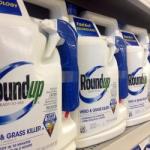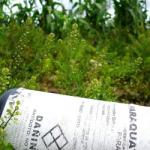Join our directors of chemistry and bio-sciences, Dr. Josh Bloom and Cameron English, as they break down these stories:
pesticide
The results of the USDA's Pesticide Data Program (PDP) for 2020 are in, and they lend themselves to two important but unsurprising conclusions: the trace amounts of pesticides in our food supply still don't pose a measurable health risk; environme
Last July, the UN published a startling report documenting the pandemic's effect on global food security in 2020: “In many parts of the
If you want to show that any chemical is dangerous, here's a three-step process that will consistently yield the desired result:
If you're a regular ACSH reader, you've met “Crazy Joe Mercola,” as my colleague Dr. Josh Bloom fondly refers to him.
Any time I see the phrase "according to fact-checkers" in a headline, I can't help but roll my eyes.
Post-COVID-19, the once-ferocious debate surrounding genetically engineered (GE) crops seems like a fading memory, especially with the anti-GMO movement r
Environmental activist groups and trial lawyers have launched a new campaign in their legal effort to restrict access to synthetic pesticides.
When we argue over genetically engineered crops and pesticides in the developed world, the outcome of the debate doesn't determine whether or not we go hungry.
If you search for “glyphosate in food,” you'll run headfirst into an endless list of copycat stories, all warning about the dangers of weedkiller-tainted cereal, bread, crackers, baby food, chips, eggs, meat— and basically any other food you can t












